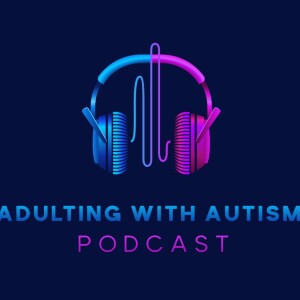

Link to original articleWelcome to The Nonlinear Library, where we use Text-to-Speech software to convert the best writing from the Rationalist and EA communities into audio. This is: Childhood and Education Roundup #4, published by Zvi on January 31, 2024 on LessWrong.
Before we begin, I will note that I have indeed written various thoughts about the three college presidents that appeared before Congress and the resulting controversies, including the disputes regarding plagiarism. However I...
Link to original article
Welcome to The Nonlinear Library, where we use Text-to-Speech software to convert the best writing from the Rationalist and EA communities into audio. This is: Childhood and Education Roundup #4, published by Zvi on January 31, 2024 on LessWrong.
Before we begin, I will note that I have indeed written various thoughts about the three college presidents that appeared before Congress and the resulting controversies, including the disputes regarding plagiarism. However I have excluded them from this post.
Discipline and Prohibitions
Washington Post Editorial Board says schools should ban smartphones, and parents should help make this happen rather than more often opposing such bans in order to make logistical coordination easier.
I agree with the editorial board. Even when not in use, having a phone in one's pocket is a continuous distraction. The ability to use the phone creates immense social and other pressures to use it, or think about using it, continuously. If we are going to keep doing this physically required school thing at all, students need to be fully device-free during the school day except for where we intentionally want them to have access. Having a phone on standby won't work.
The Netherlands is going to try it for January 2024, including all electronic devices.
Jonathan Haidt, man with a message, highlights Vertex Partnership Academies, which locks all student electronic devices away all day and claims this is a big win all around. They say even the kids appreciate it. With phones available, other kids know you have the option to be on your phone and on social media, so you pay a social price if you do not allow constant distraction. Whereas with phones physically locked away, you can't do anything during school hours, so your failure to do so goes unpunished.
Some old school straight talk from David Sedaris. He is wrong, also he is not wrong. He is funny, also he is very funny.
This explanation is one more thing that, as much as I hate actually writing without capital letters, makes me more positive on Altman:
Sam Altman: mildly interesting observation:
i always use capital letters when writing by hand, but usually only type them when doing something that somehow reminds me of being in school.
And of course, your periodic reminder department:
Alyssa Vance: In California, it is legally rape for two high school seniors to have consensual sex with each other. This is dumb, and people should be allowed to say it's dumb without being accused of coddling rapists.
I do not pretend to know exactly what the right rules are, but this is not it. If there is no substantial age gap, it shouldn't be statutory rape.
A disobedience guide for children, addressed to those facing physical abuse. The issue is that children mostly only have the ability to inflict damage. You can break windows, or hit back, or tell people you're being abused, or run away, or otherwise make the situation worse to get what you want. A lot of unfortunately this is a symmetric weapon. A child can inflict a lot of damage and make life worse if they want to do that, and can do that with any goal in mind however righteous or tyrannical. The asymmetry hopefully arrives in a selective willingness to go to total war.
Bad stuff that happens to you in childhood makes you a less happy adult (direct). Bad stuff here includes financial difficulties, death of a parent, divorce, prolonged absence of a parent, health issues, bullying and physical or sexual abuse. Definitely a study I expect to replicate and that we mostly did not need to run, yet I am coming around to the need to have studies showing such obvious conclusions. People are often rather dense and effect sizes matter.
The effect sizes here seem moderate. For example, divorce was associated with an 0.07 point decrease in happiness on a scale where very happy is 3 and not too happy is 1. That's a big deal if real, also not overwhelming.
What worries me are the controls. Adverse childhood events are often ...
View more
Welcome to The Nonlinear Library, where we use Text-to-Speech software to convert the best writing from the Rationalist and EA communities into audio. This is: Childhood and Education Roundup #4, published by Zvi on January 31, 2024 on LessWrong.
Before we begin, I will note that I have indeed written various thoughts about the three college presidents that appeared before Congress and the resulting controversies, including the disputes regarding plagiarism. However I have excluded them from this post.
Discipline and Prohibitions
Washington Post Editorial Board says schools should ban smartphones, and parents should help make this happen rather than more often opposing such bans in order to make logistical coordination easier.
I agree with the editorial board. Even when not in use, having a phone in one's pocket is a continuous distraction. The ability to use the phone creates immense social and other pressures to use it, or think about using it, continuously. If we are going to keep doing this physically required school thing at all, students need to be fully device-free during the school day except for where we intentionally want them to have access. Having a phone on standby won't work.
The Netherlands is going to try it for January 2024, including all electronic devices.
Jonathan Haidt, man with a message, highlights Vertex Partnership Academies, which locks all student electronic devices away all day and claims this is a big win all around. They say even the kids appreciate it. With phones available, other kids know you have the option to be on your phone and on social media, so you pay a social price if you do not allow constant distraction. Whereas with phones physically locked away, you can't do anything during school hours, so your failure to do so goes unpunished.
Some old school straight talk from David Sedaris. He is wrong, also he is not wrong. He is funny, also he is very funny.
This explanation is one more thing that, as much as I hate actually writing without capital letters, makes me more positive on Altman:
Sam Altman: mildly interesting observation:
i always use capital letters when writing by hand, but usually only type them when doing something that somehow reminds me of being in school.
And of course, your periodic reminder department:
Alyssa Vance: In California, it is legally rape for two high school seniors to have consensual sex with each other. This is dumb, and people should be allowed to say it's dumb without being accused of coddling rapists.
I do not pretend to know exactly what the right rules are, but this is not it. If there is no substantial age gap, it shouldn't be statutory rape.
A disobedience guide for children, addressed to those facing physical abuse. The issue is that children mostly only have the ability to inflict damage. You can break windows, or hit back, or tell people you're being abused, or run away, or otherwise make the situation worse to get what you want. A lot of unfortunately this is a symmetric weapon. A child can inflict a lot of damage and make life worse if they want to do that, and can do that with any goal in mind however righteous or tyrannical. The asymmetry hopefully arrives in a selective willingness to go to total war.
Bad stuff that happens to you in childhood makes you a less happy adult (direct). Bad stuff here includes financial difficulties, death of a parent, divorce, prolonged absence of a parent, health issues, bullying and physical or sexual abuse. Definitely a study I expect to replicate and that we mostly did not need to run, yet I am coming around to the need to have studies showing such obvious conclusions. People are often rather dense and effect sizes matter.
The effect sizes here seem moderate. For example, divorce was associated with an 0.07 point decrease in happiness on a scale where very happy is 3 and not too happy is 1. That's a big deal if real, also not overwhelming.
What worries me are the controls. Adverse childhood events are often ...
Comments (3)
More Episodes
All Episodes>>You may also like
Creat Yourt Podcast In Minutes
- Full-featured podcast site
- Unlimited storage and bandwidth
- Comprehensive podcast stats
- Distribute to Apple Podcasts, Spotify, and more
- Make money with your podcast
It is Free












